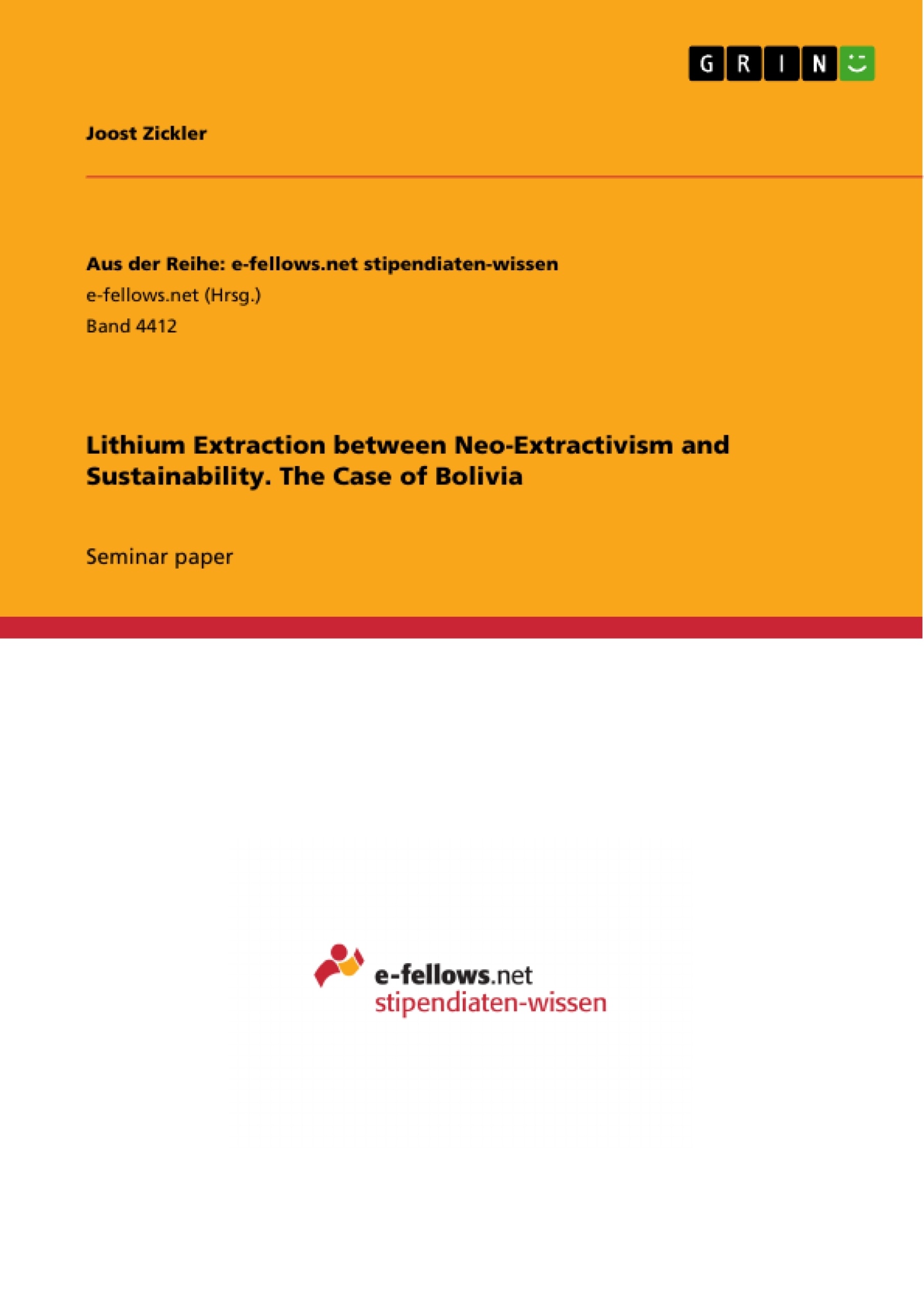The industrialization of Bolivia's lithium reserves, initiated in 2008, represents a pivotal moment in the country's economic and social development. This paper explores the nexus between Bolivia's lithium extraction policies and the concept of neo-extractivism (NE), which scrutinizes the resource extraction strategies of progressive governments. Drawing on qualitative process-tracing methodology, the study investigates whether Bolivia's lithium policies align with or diverge from the principles of NE. By reviewing literature on extractivism and NE, five defining hallmarks of NE are elucidated, alongside an examination of NE's relationship with sustainability. Analyzing Bolivian lithium extraction policies through governmental sources and academic literature, the paper evaluates their adherence to NE criteria. Additionally, conceptual limitations of the NE framework are addressed through insights from the global lithium production network literature. The paper concludes with an assessment of the findings from a sustainability perspective, shedding light on the implications of Bolivia's lithium policies for its economic and environmental future.
Inhaltsverzeichnis (Table of Contents)
- Introduction
- Literature review
- Extractivism and sustainability
- Neo-extractivism and sustainability
- Lithium extraction in Bolivia: YLB-ACISA
- Context
- Lithium Politics under the MAS administration
- Results: Lithium extraction between neo-extractivism and sustainability
- Conclusion: A way towards sustainability
Zielsetzung und Themenschwerpunkte (Objectives and Key Themes)
This paper aims to analyze the Bolivian lithium extraction policies in relation to the concept of neo-extractivism. By employing a qualitative process-tracing approach, the paper seeks to determine whether the Bolivian lithium policies since 2008 are on the verge of continuing neo-extractivism.
- Neo-extractivism as a framework for understanding resource extraction in progressive Latin American governments
- The environmental, social, and economic implications of lithium extraction in Bolivia
- The role of the Bolivian government in shaping lithium extraction policies
- The potential for sustainable lithium extraction in Bolivia
- The relationship between neo-extractivism and global production networks in the lithium industry
Zusammenfassung der Kapitel (Chapter Summaries)
The first chapter provides an introduction to the topic of Bolivian lithium extraction and outlines the research question. The second chapter reviews the relevant literature on extractivism, particularly focusing on neo-extractivism and its relation to sustainability. This section elaborates on five defining hallmarks of neo-extractivism and analyzes its potential for sustainable development.
The third chapter delves into the details of Bolivian lithium extraction policies, drawing on government communication data, presidential decrees, and academic literature. It explores the context of lithium extraction in Bolivia and examines the lithium politics under the MAS administration.
The fourth chapter presents the results of the research, answering the research question and exploring the criteria for neo-extractivism outlined in the previous sections. It also addresses conceptual shortcomings of the neo-extractivism concept through insights from the global lithium production network literature.
Schlüsselwörter (Keywords)
The main keywords and focus topics of the text are: neo-extractivism, lithium extraction, Bolivia, sustainability, global production networks, energy transition, resource extraction, environmental impact, social impact, economic development.
- Quote paper
- Joost Zickler (Author), 2024, Lithium Extraction between Neo-Extractivism and Sustainability. The Case of Bolivia, Munich, GRIN Verlag, https://www.hausarbeiten.de/document/1461288


